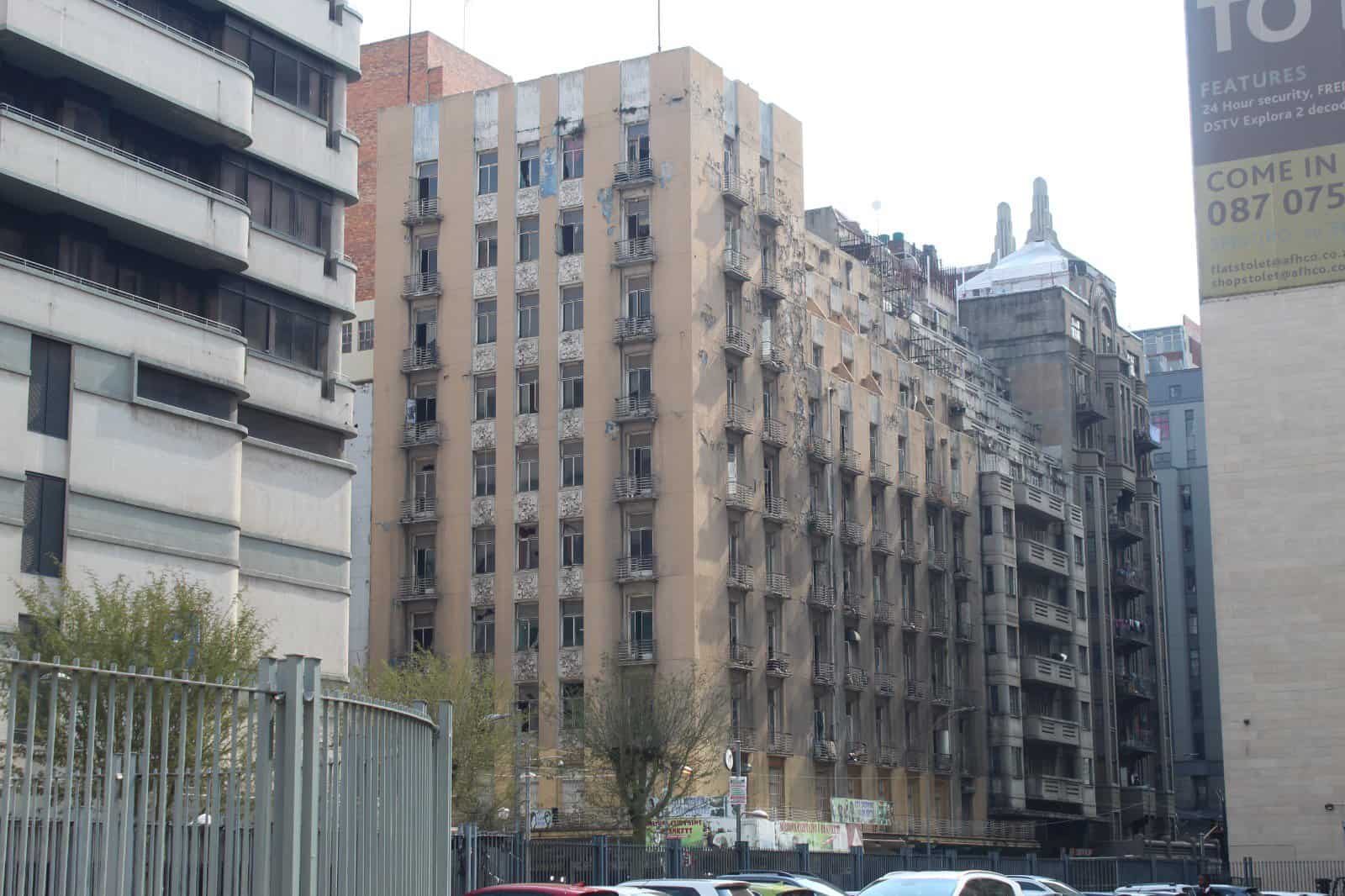A walkabout of the city showed the degradation and danger faced by business owners in the Johannesburg CBD.

At the foot of each of Johannesburg’s claustrophobic concrete towers are the men and women who keep the city ticking over.
For those outside the city, the smothering buildings cast intimidating shadows, but at street level, attitudes grow harder daily.
Desensitised to the lingering threat of crime, business is conducted on streets not so much crumbling, but simply stripped of their value by those acting with relative impunity.
Members of the DA took a tour of the Johannesburg CBD on Tuesday to gauge the impact crime was having on business owners and residents.
Police visibility needed
Shop owners all have similar stories to tell, centring around a desire for the municipality to do more to make the streets presentable and safe.
The owner of a store on the corner of Eloff and Market Streets selling high-end camera equipment behind thick iron bars said the mere perception of the city’s crime was enough to keep people away.
Delisile Muwonge of SA Camera Land said that when those enquiring about her competitively priced products over the phone realised her premises were in the heart of the CBD, the phone line would often go dead.
She claimed her store had been robbed four times in recent years and even witnessed the police unable to apprehend suspects who fled within a few metres of officers.
“We need more police in the streets because we never see them unless they are coming to check if I am selling stolen goods,” Muwonge told The Citizen.
Crime improving for some
Not all traders are downbeat about business and safety in the CBD.
Sakile Ziqubu, manager of clothing store Side Step, works in the Small Street Mall, which runs between Commissioner and Rahima Moosa Streets, and says security in the tight and busy walkways is improving.
“We used to have robberies, muggings and people getting jumped at the ATM, but now there are guards at each entrance and the wardens patrol all the time,” said Ziqubu.
He added that the municipality was engaging with business owners to address security concerns, but that private security was more visible than police or their metropolitan colleagues.
Bree Street repairs
Lillian Ngoyi Street remains a corrugated iron scar through the heart of the city, and an affected businessman vented his frustration at the length of the repairs and the hollow periodic photo opportunities.
“They are two years too late. What have they been doing to put pressure on them to fix this? We see them here taking photos and talking, but nothing happens,” said the man.
The repairs have created two dark corridors on either side of what was Bree Street, which the man says are frequented by pickpockets and shoplifters – many being foreign nationals.
“I am South African, but I am the one who feels like a foreigner. This is killing us and the municipality does not care about any of us,” he vented, stressing he could not be named for fear of being targeted.

Block by block differences
A walk from the Carlton Centre to Johannesburg Central Police Station illustrates the city’s mixed fortunes, from vagrancy to manicured squares in between the offices of corporate giants.
However, infrastructure theft has left street corners without manhole covers, brickwork, functioning street lights or working traffic signals.
Cleanliness varies from block to block, mirrored by the hijacked and abandoned buildings that dot the skyline.
DA Gauteng leader Solly Msimanga said that clearing these buildings should be a priority as they are hives of criminality.
“We have found wanted suspects and stolen property in these buildings and syndicates use these buildings as a way to recruit men and women with little to no opportunities,” Msimanga told The Citizen.

Municipal entities working in ‘silos’
Holding municipal entities to account was what the opposition was hoping to do, with DA Johannesburg caucus leader Belinda Kayser-Echeozonjoku highlighting the problem with entities working in silos.
“You can’t fix the city by dealing with one particular entity. The entities are using EPWP workers to pick up the litter, but why are they not also working with businesses, with residents to have coordinated clean-ups as well?” said Kayser-Echeozonjoku.
“You will see that the areas where it is clean are where businesses have taken control. The city should really assist in having some understanding or collaboration with the private sector,” she added.
Kayser-Echeozonjoku said they would take the day’s findings and seek answers from responsible parties in the Gauteng legislature and municipal section 79 committees.
The tour ended with the DA delegation inspecting Johannesburg Central police station and questioning management.
“The building needs to serve the community. It should be creating a space where the people of Johannesburg and victims of crime feel safe to report crime.
“If residents and business owners don’t trust the people who are meant to protect them, that only breeds further criminality and suffering,” said Msimanga.
NOW READ: These are the suburbs most people are moving to in Johannesburg






